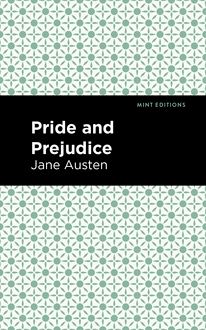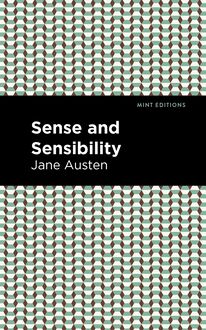-
 Univers
Univers
-
 Ebooks
Ebooks
-
 Livres audio
Livres audio
-
 Presse
Presse
-
 Podcasts
Podcasts
-
 BD
BD
-
 Documents
Documents
-
- Cours
- Révisions
- Ressources pédagogiques
- Sciences de l’éducation
- Manuels scolaires
- Langues
- Travaux de classe
- Annales de BEP
- Etudes supérieures
- Maternelle et primaire
- Fiches de lecture
- Orientation scolaire
- Méthodologie
- Corrigés de devoir
- Annales d’examens et concours
- Annales du bac
- Annales du brevet
- Rapports de stage
La lecture à portée de main
Vous pourrez modifier la taille du texte de cet ouvrage
Découvre YouScribe en t'inscrivant gratuitement
Je m'inscrisDécouvre YouScribe en t'inscrivant gratuitement
Je m'inscrisEn savoir plus
Vous pourrez modifier la taille du texte de cet ouvrage
En savoir plus

Description
The Snake’s Pass (1890) is a novel by Irish author Bram Stoker. Written at the beginning of his career, The Snake’s Pass helped to establish the Irish master of Gothic horror’s reputation as a leading writer of the early-twentieth century. The Snake’s Pass is based on the story of Saint Patrick, the legendary hero who cast the serpents out of Ireland forever. During a violent storm, Arthur Severn and his driver Andy are forced to take shelter in Carnacliff, a town in County Clare. Waiting out the weather in the local bar, Arthur listens to a story of the King of Snakes, who is rumored to remain—despite being banished by Saint Patrick—in order to watch over his crown. Whenever a fog rolls over the town, the local people say it is the spirit of the terrible king, returned once more to ensure his treasure stays hidden. That same evening, Arthur meets a man known as Black Murdock, a vindictive landowner and usurer who manipulates the poor folk of Carnacliff. Against his own interests, Arthur decides to remain in town to help a man whose land was taken from him by Murdock, only to be swept up in a quest to find the Lost Crown of Gold. The Snake’s Pass is a gripping work of horror and romance by Bram Stoker, the secretive and vastly underrated creator of Dracula, one of history’s greatest villains. With a beautifully designed cover and professionally typeset manuscript, this edition of Bram Stoker’s The Snake’s Pass is a classic of Irish literature reimagined for modern readers.
Sujets
Informations
| Publié par | Mint Editions |
| Date de parution | 21 juin 2021 |
| Nombre de lectures | 0 |
| EAN13 | 9781513287058 |
| Langue | English |
| Poids de l'ouvrage | 1 Mo |
Informations légales : prix de location à la page 0,0500€. Cette information est donnée uniquement à titre indicatif conformément à la législation en vigueur.
Extrait
The Snake’s Pass
Bram Stoker
The Snake’s Pass was first published in 1890.
This edition published by Mint Editions 2021.
ISBN 9781513282039 | E-ISBN 9781513287058
Published by Mint Editions®
minteditionbooks.com
Publishing Director: Jennifer Newens
Design & Production: Rachel Lopez Metzger
Project Manager: Micaela Clark
Typesetting: Westchester Publishing Services
C ONTENTS I. A S UDDEN S TORM II. T HE L OST C ROWN OF G OLD III. T HE G OMBEEN M AN IV. T HE S ECRETS OF THE B OG V. O N K NOCKNACAR VI. C ONFIDENCES VII. V ANISHED VIII. A V ISIT TO J OYCE IX. M Y N EW P ROPERTY X. I N THE C LIFF F IELDS XI. U N M AUVAIS Q UART D’ H EURE XII. B OG- F ISHING AND S CHOOLING XIII. M URDOCK’S W OOING XIV. A T RIP TO P ARIS XV. A M IDNIGHT T REASURE H UNT XVI. A G RIM W ARNING XVII. T HE C ATASTROPHE XVIII. T HE F ULFILMENT
I
A S UDDEN S TORM
B etween two great mountains of grey and green, as the rock cropped out between the tufts of emerald verdure, the valley, almost as narrow as a gorge, ran due west towards the sea. There was just room for the roadway, half cut in the rock, beside the narrow strip of dark lake of seemingly unfathomable depth that lay far below between perpendicular walls of frowning rock. As the valley opened, the land dipped steeply, and the lake became a foam-fringed torrent, widening out into pools and miniature lakes as it reached the lower ground. In the wide terrace-like steps of the shelving mountain there were occasional glimpses of civilization emerging from the almost primal desolation which immediately surrounded us—clumps of trees, cottages, and the irregular outlines of stone-walled fields, with black stacks of turf for winter firing piled here and there. Far beyond was the sea—the great Atlantic—with a wildly irregular coast-line studded with a myriad of clustering rocky islands. A sea of deep dark blue, with the distant horizon tinged with a line of faint white light, and here and there, where its margin was visible through the breaks in the rocky coast, fringed with a line of foam as the waves broke on the rocks or swept in great rollers over the level expanse of sands.
The sky was a revelation to me, and seemed to almost obliterate memories of beautiful skies, although I had just come from the south and had felt the intoxication of the Italian night, where in the deep blue sky the nightingale’s note seems to hang as though its sound and the colour were but different expressions of one common feeling.
The whole west was a gorgeous mass of violet and sulphur and gold—great masses of storm-cloud piling up and up till the very heavens seemed weighted with a burden too great to bear. Clouds of violet, whose centres were almost black and whose outer edges were tinged with living gold; great streaks and piled up clouds of palest yellow deepening into saffron and flame-colour which seemed to catch the coming sunset and to throw its radiance back to the eastern sky.
The view was the most beautiful that I had ever seen, and, accustomed as I had been only to the quiet pastoral beauty of a grass country, with occasional visits to my Great Aunt’s well-wooded estate in the South of England, it was no wonder that it arrested my attention and absorbed my imagination. Even my brief half-a-year’s travel in Europe, now just concluded, had shown me nothing of the same kind.
Earth, sea and air all evidenced the triumph of nature, and told of her wild majesty and beauty. The air was still—ominously still. So still was all, that through the silence, that seemed to hedge us in with a sense of oppression, came the booming of the distant sea, as the great Atlantic swell broke in surf on the rocks or stormed the hollow caverns of the shore.
Even Andy, the driver, was for the nonce awed into comparative silence. Hitherto, for nearly forty miles of a drive, he had been giving me his experiences—propounding his views—airing his opinions; in fact he had been making me acquainted with his store of knowledge touching the whole district and its people—including their names, histories, romances, hopes and fears—all that goes to make up the life and interest of a country-side.
No barber—taking this tradesman to illustrate the popular idea of loquacity in excelsis —is more consistently talkative than an Irish car-driver to whom has been granted the gift of speech. There is absolutely no limit to his capability, for every change of surrounding affords a new theme and brings on the tapis a host of matters requiring to be set forth.
I was rather glad of Andy’s ‘brilliant flash of silence’ just at present, for not only did I wish to drink in and absorb the grand and novel beauty of the scene that opened out before me, but I wanted to understand as fully as I could some deep thought which it awoke within me. It may have been merely the grandeur and beauty of the scene—or perhaps it was the thunder which filled the air that July evening—but I felt exalted in a strange way, and impressed at the same time with a new sense of the reality of things. It almost seemed as if through that opening valley, with the mighty Atlantic beyond and the piling up of the storm-clouds overhead, I passed into a new and more real life.
Somehow I had of late seemed to myself to be waking up. My foreign tour had been gradually dissipating my old sleepy ideas, or perhaps overcoming the negative forces that had hitherto dominated my life; and now this glorious burst of wild natural beauty—the majesty of nature at its fullest—seemed to have completed my awakening, and I felt as though I looked for the first time with open eyes on the beauty and reality of the world.
Hitherto my life had been but an inert one, and I was younger in many ways and more deficient in knowledge of the world in all ways than other young men of my own age. I had stepped but lately from boyhood, with all boyhood’s surroundings, into manhood, and as yet I was hardly at ease in my new position.
For the first time in my life I had had a holiday—a real holiday, as one can take it who can choose his own way of amusing himself.
I had been brought up in an exceedingly quiet way with an old clergyman and his wife in the west of England, and except my fellow pupils, of whom there was never at any time more than one other, I had had little companionship. Altogether I knew very few people. I was the ward of a Great Aunt, who was wealthy and eccentric and of a sternly uncompromising disposition. When my father and mother were lost at sea, leaving me, an only child, quite unprovided for, she undertook to pay for my schooling and to start me in a profession if I should show sufficient aptitude for any. My father had been pretty well cut off by his family on account of his marriage with what they considered his inferior, and times had been, I was always told, pretty hard for them both. I was only a very small boy when they were lost in a fog when crossing the Channel; and the blank that their loss caused me made me, I dare say, seem even a duller boy than I was. As I did not get into much trouble and did not exhibit any special restlessness of disposition, my Great Aunt took it, I suppose, for granted that I was very well off where I was; and when, through growing years, the fiction of my being a schoolboy could be no longer supported, the old clergyman was called “guardian” instead of “tutor,” and I passed with him the years that young men of the better class usually spend in College life. The nominal change of position made little difference to me, except that I was taught to ride and shoot, and was generally given the rudiments of an education which was to fit me for being a country gentleman. I dare say that my tutor had some secret understanding with my Great Aunt, but he never gave me any hint whatever of her feelings towards me. A part of my holidays each year was spent in her place, a beautiful country seat. Here I was always treated by the old lady with rigid severity but with the best of good manners, and by the servants with affection as well as respect. There were a host of cousins, both male and female, who came to the house; but I can honestly say that by not one of them was I ever treated with cordiality. It may have been my fault, or the misfortune of my shyness; but I never met one of them without being made to feel that I was an “outsider.”
I can understand now the cause of this treatment as arising from their suspicions when I remember that the old lady, who had been so severe with me all my life, sent for me when she lay on her deathbed, and, taking my hand in hers and holding it tight, said, between her gasps:—
“Arthur, I hope I have not done wrong, but I have reared you so that the world may for you have good as well as bad—happiness as well as unhappiness; that you may find many pleasures where you thought there were but few. Your youth, I know, my dear boy, has not been a happy one; but it was because I, who loved your dear father as if he had been my own son—and from whom I unhappily allowed myself to be estranged until it was too late—wanted you to have a good and happy manhood.”
She did not say any more, but closed her eyes and still held my hand. I feared to take it away lest I should disturb her; but presently the clasp seemed to relax, and I found that she was dead.
I had never seen a dead person, much less anyone die, and the event made a great impression on me. But youth is elastic, and the old lady had never been much in my heart.
When the will was read, it was found that I had been left heir to all her property, and that I would be called upon to take a place among the magnates of the county. I could not fall at once into the position and, as I was of a shy nature, resolved to spend at least a few months in travel. This I did, and when I had returned, after a six months’ tour, I accepted the cordial invitation of some friends, made on my travels, to pay them a visit at their place in the County of Clare.
As
-
 Univers
Univers
-
 Ebooks
Ebooks
-
 Livres audio
Livres audio
-
 Presse
Presse
-
 Podcasts
Podcasts
-
 BD
BD
-
 Documents
Documents
-
Jeunesse
-
Littérature
-
Ressources professionnelles
-
Santé et bien-être
-
Savoirs
-
Education
-
Loisirs et hobbies
-
Art, musique et cinéma
-
Actualité et débat de société
-
Jeunesse
-
Littérature
-
Ressources professionnelles
-
Santé et bien-être
-
Savoirs
-
Education
-
Loisirs et hobbies
-
Art, musique et cinéma
-
Actualité et débat de société
-
Actualités
-
Lifestyle
-
Presse jeunesse
-
Presse professionnelle
-
Pratique
-
Presse sportive
-
Presse internationale
-
Culture & Médias
-
Action et Aventures
-
Science-fiction et Fantasy
-
Société
-
Jeunesse
-
Littérature
-
Ressources professionnelles
-
Santé et bien-être
-
Savoirs
-
Education
-
Loisirs et hobbies
-
Art, musique et cinéma
-
Actualité et débat de société
- Cours
- Révisions
- Ressources pédagogiques
- Sciences de l’éducation
- Manuels scolaires
- Langues
- Travaux de classe
- Annales de BEP
- Etudes supérieures
- Maternelle et primaire
- Fiches de lecture
- Orientation scolaire
- Méthodologie
- Corrigés de devoir
- Annales d’examens et concours
- Annales du bac
- Annales du brevet
- Rapports de stage













